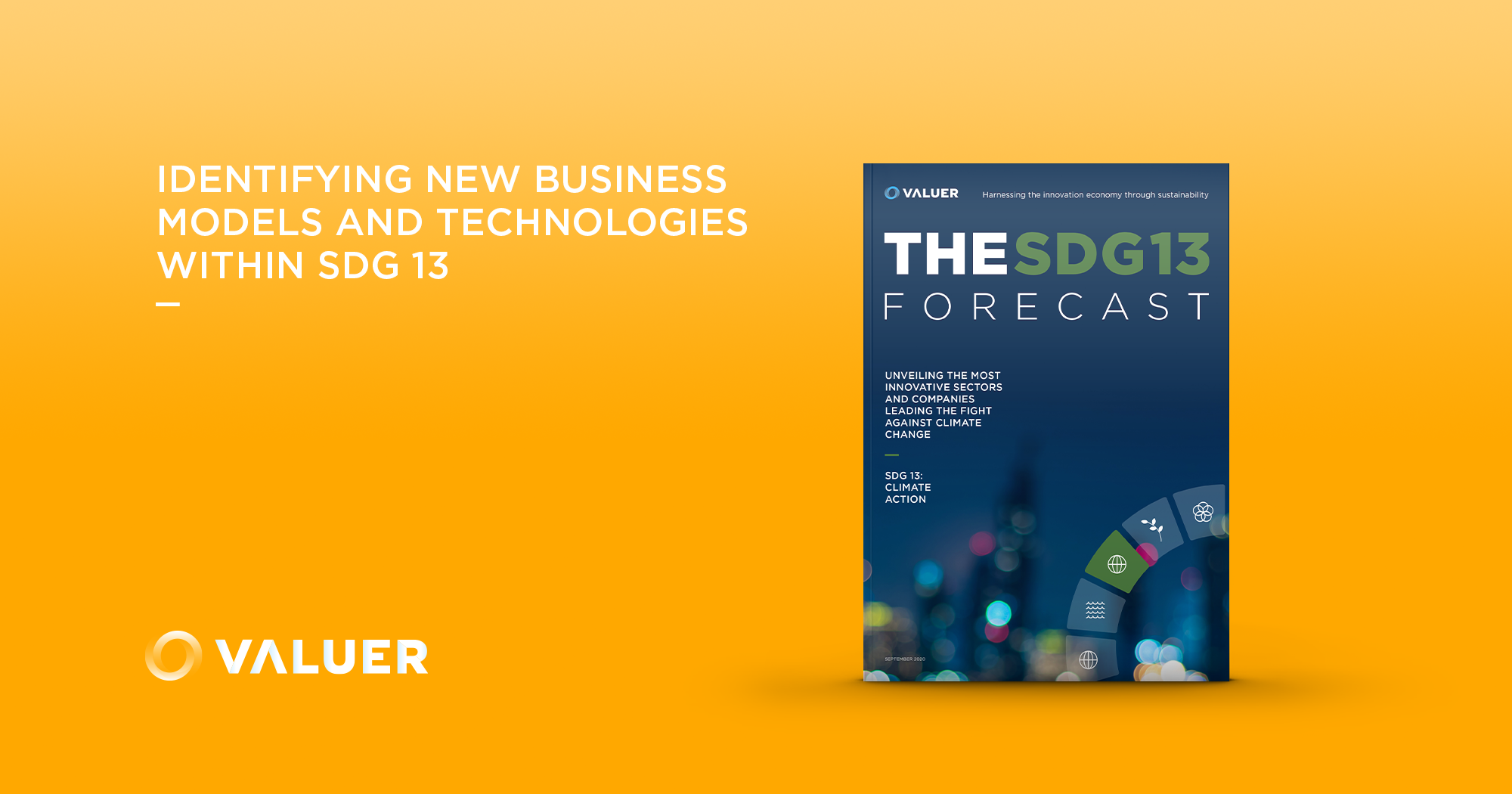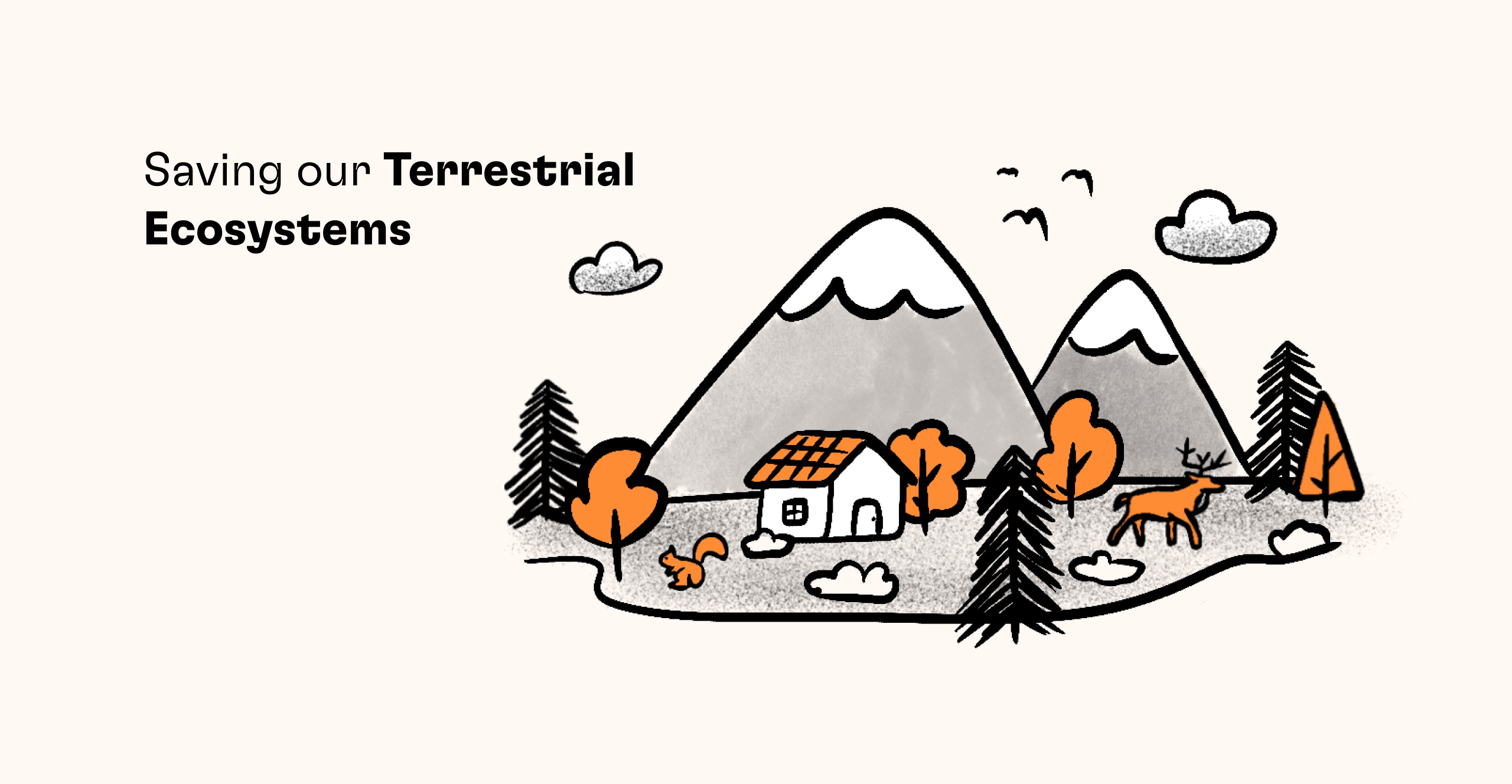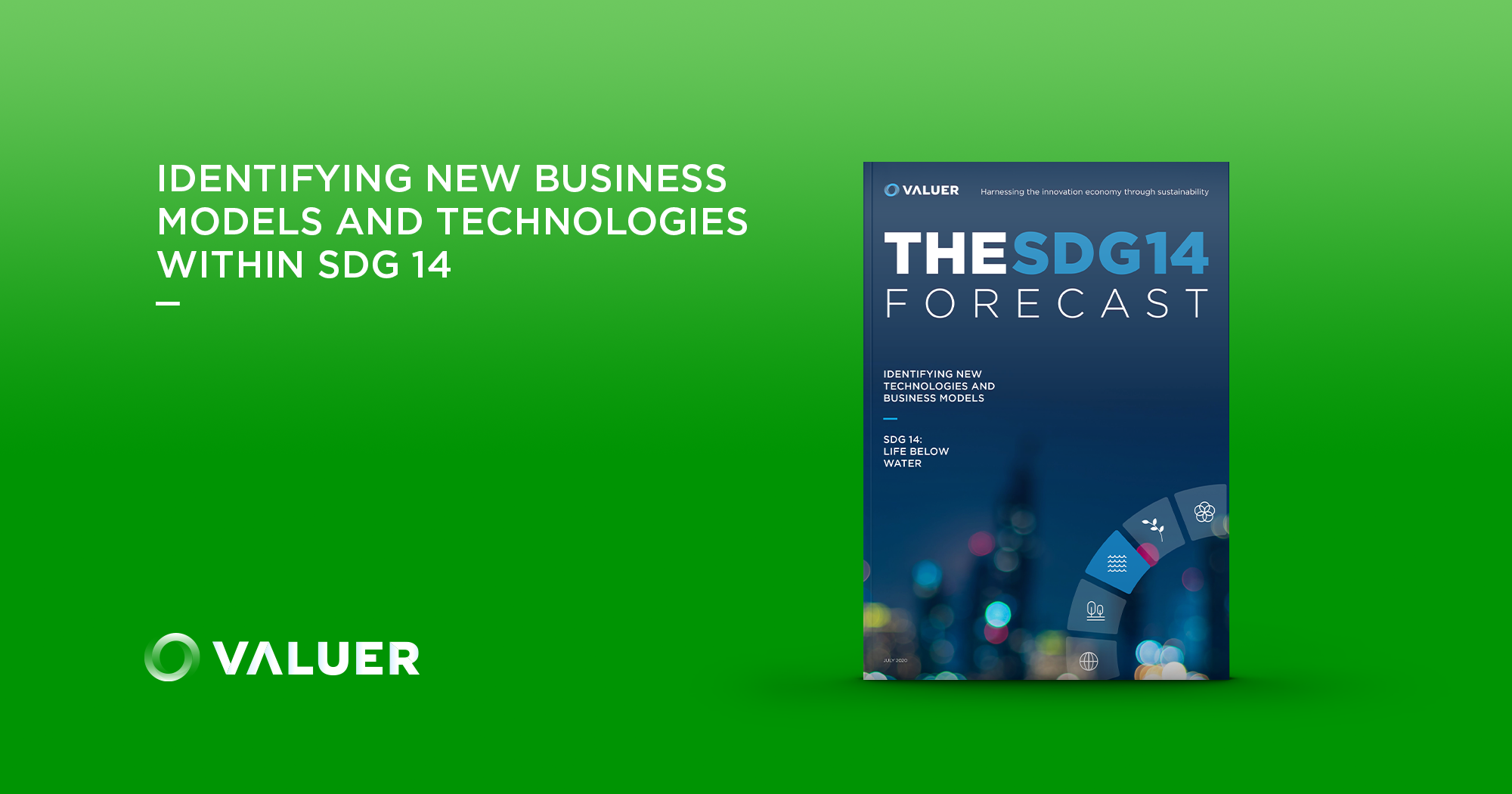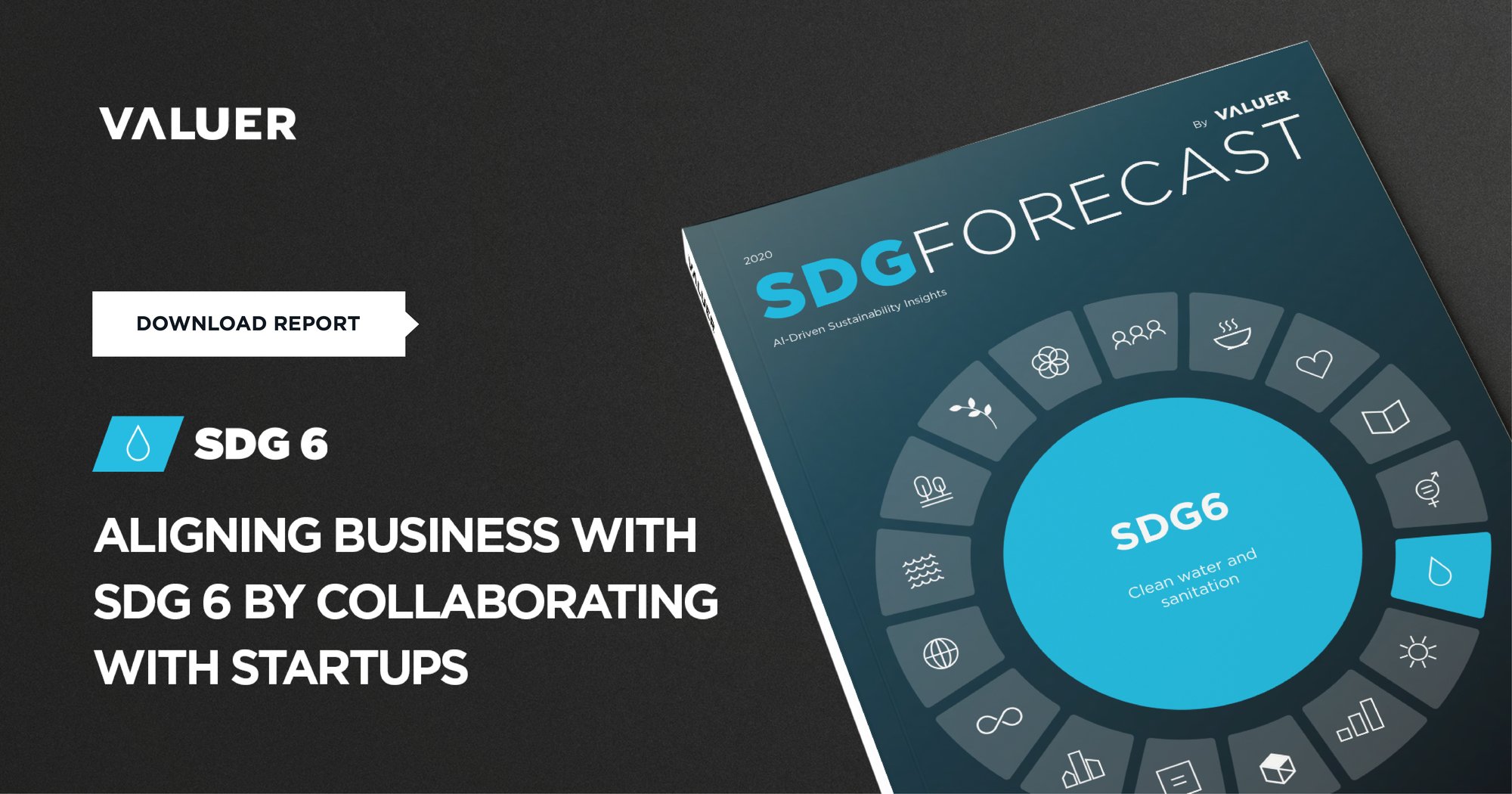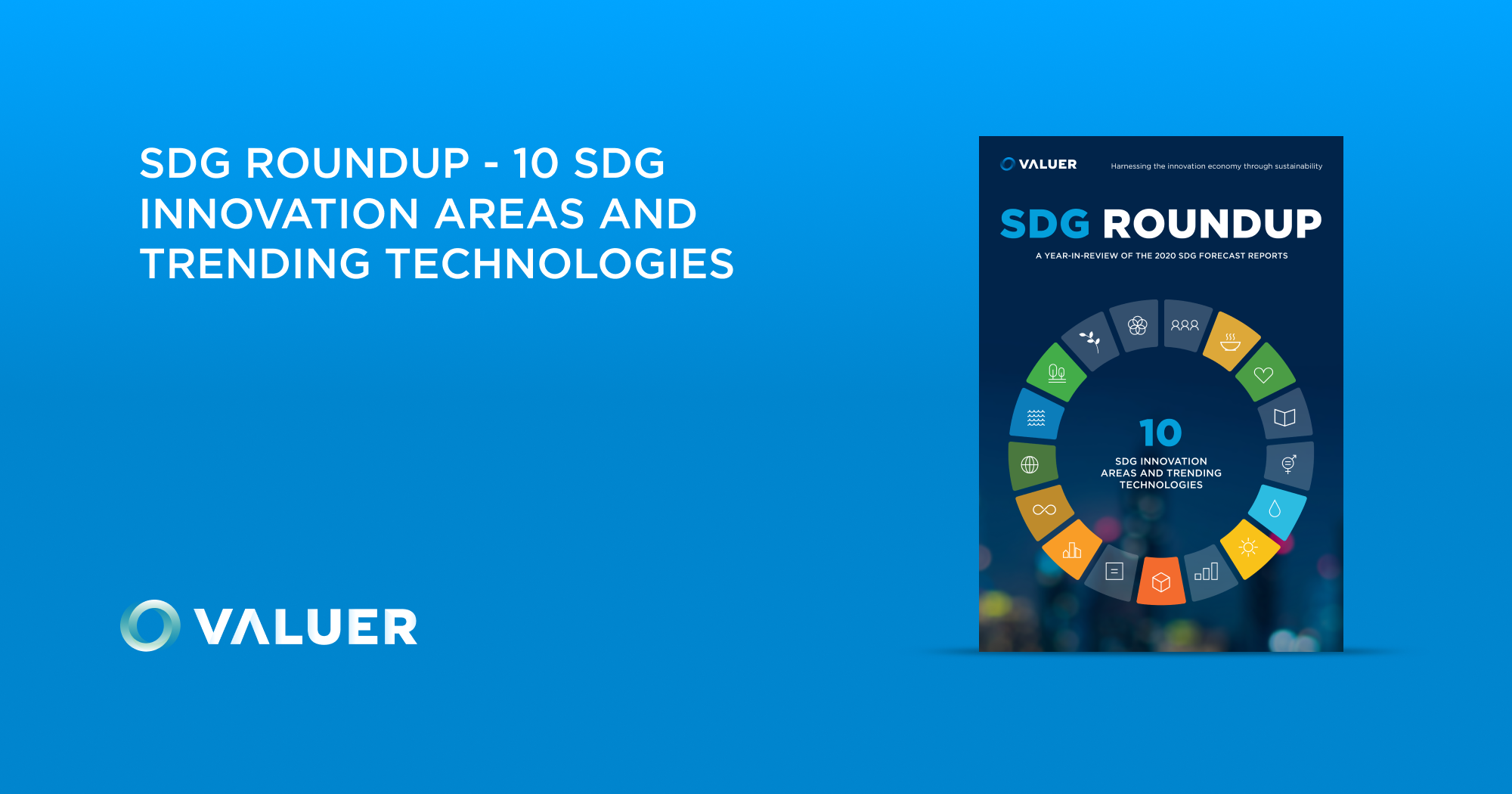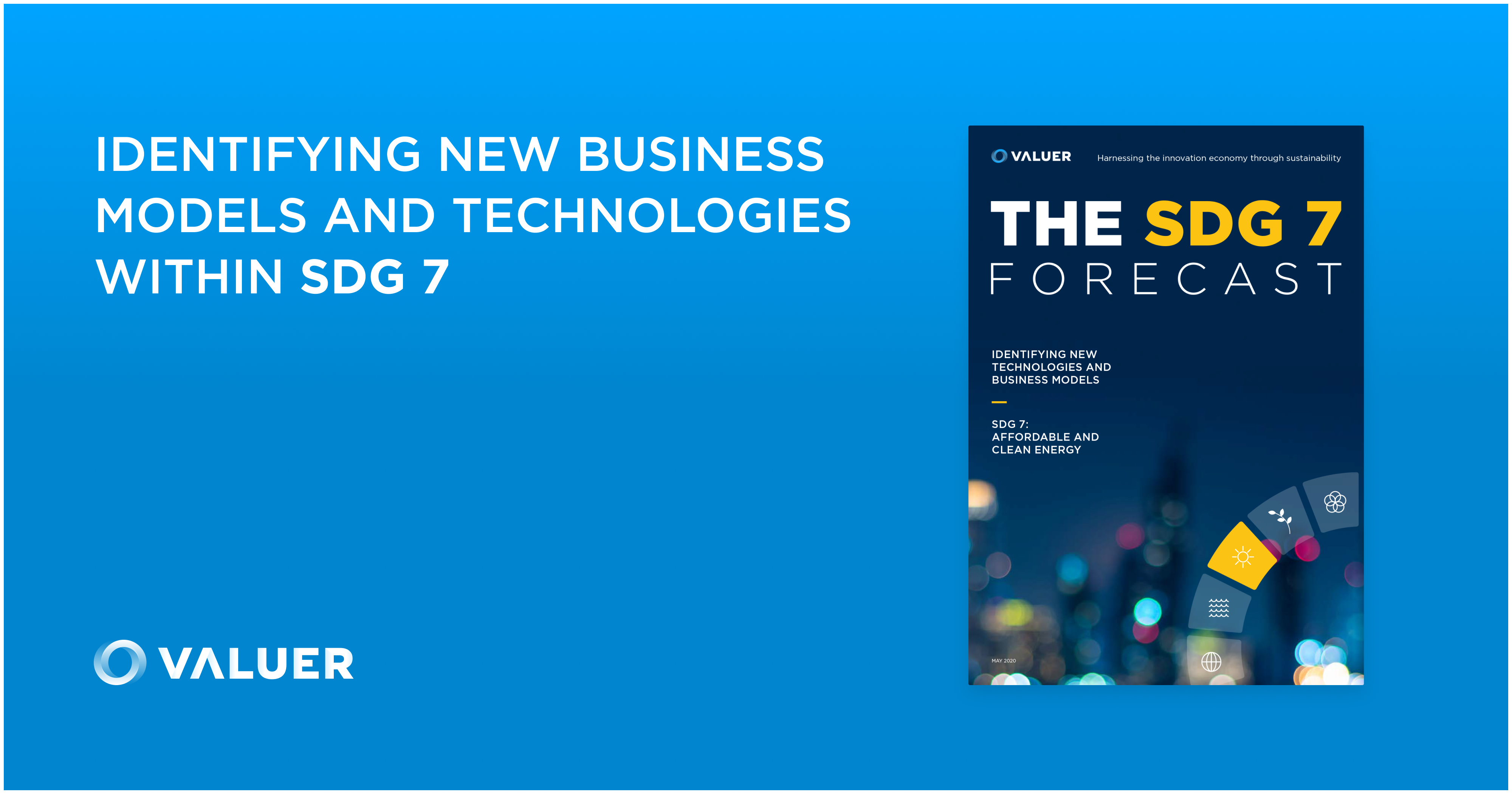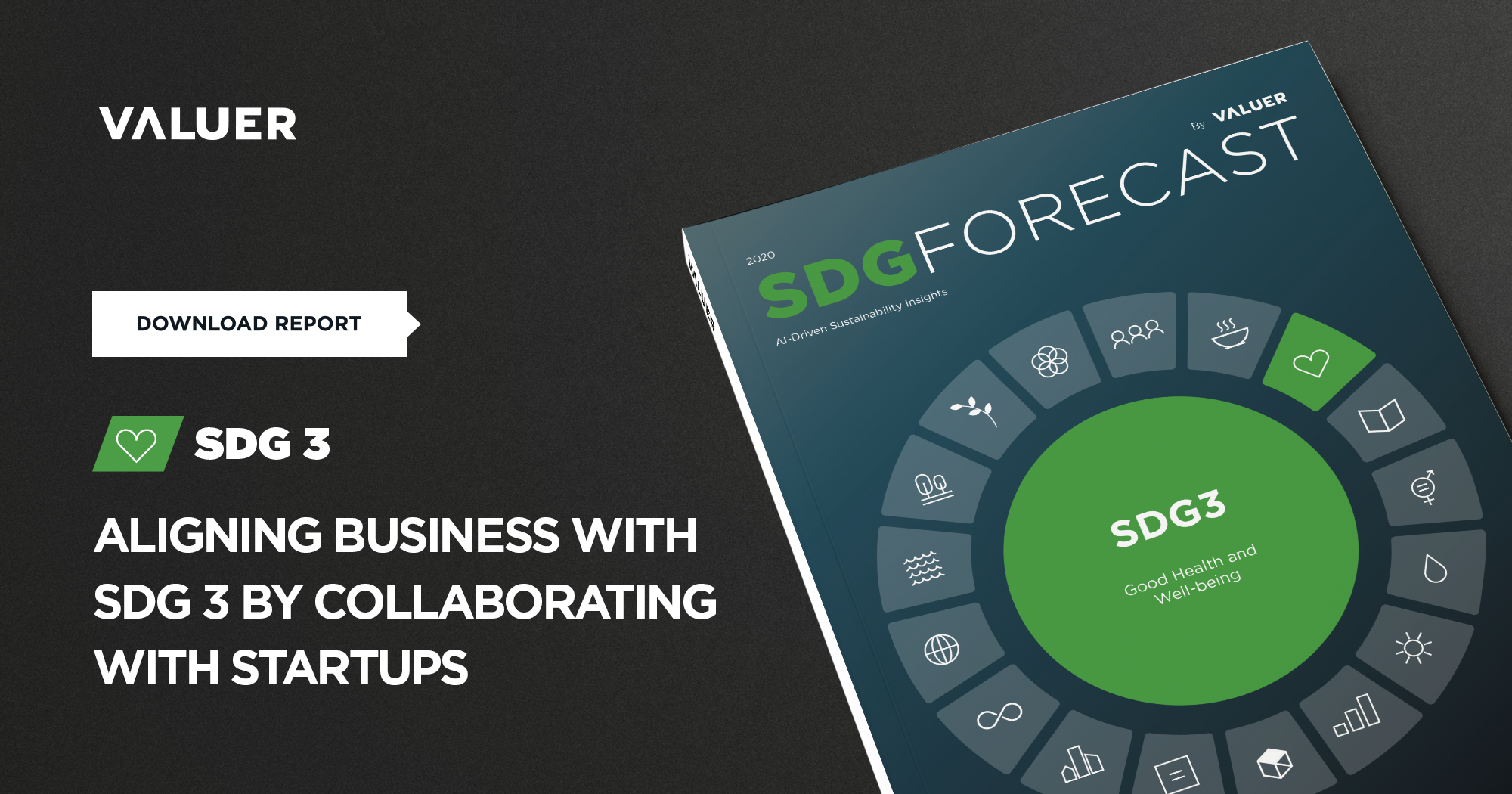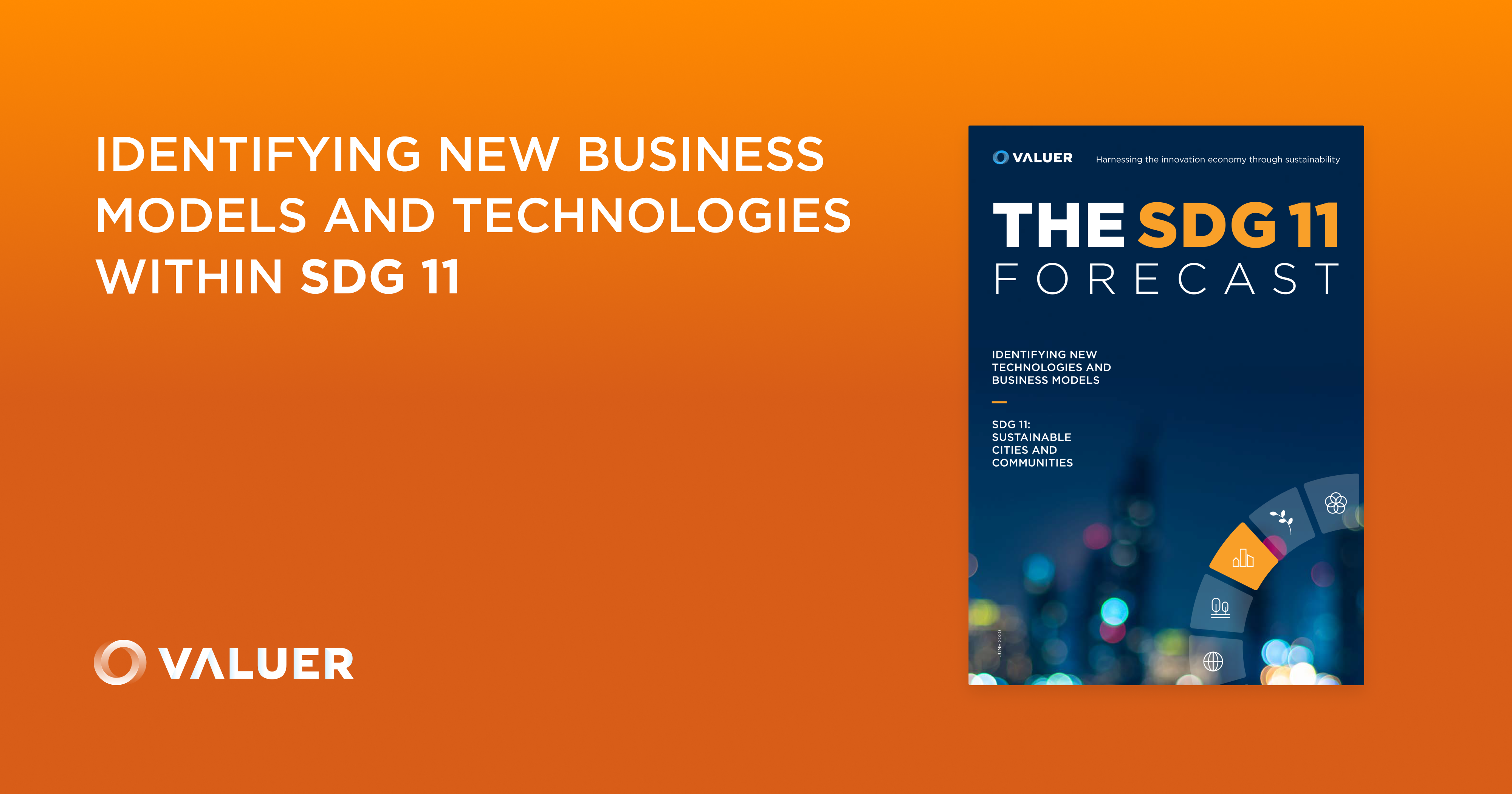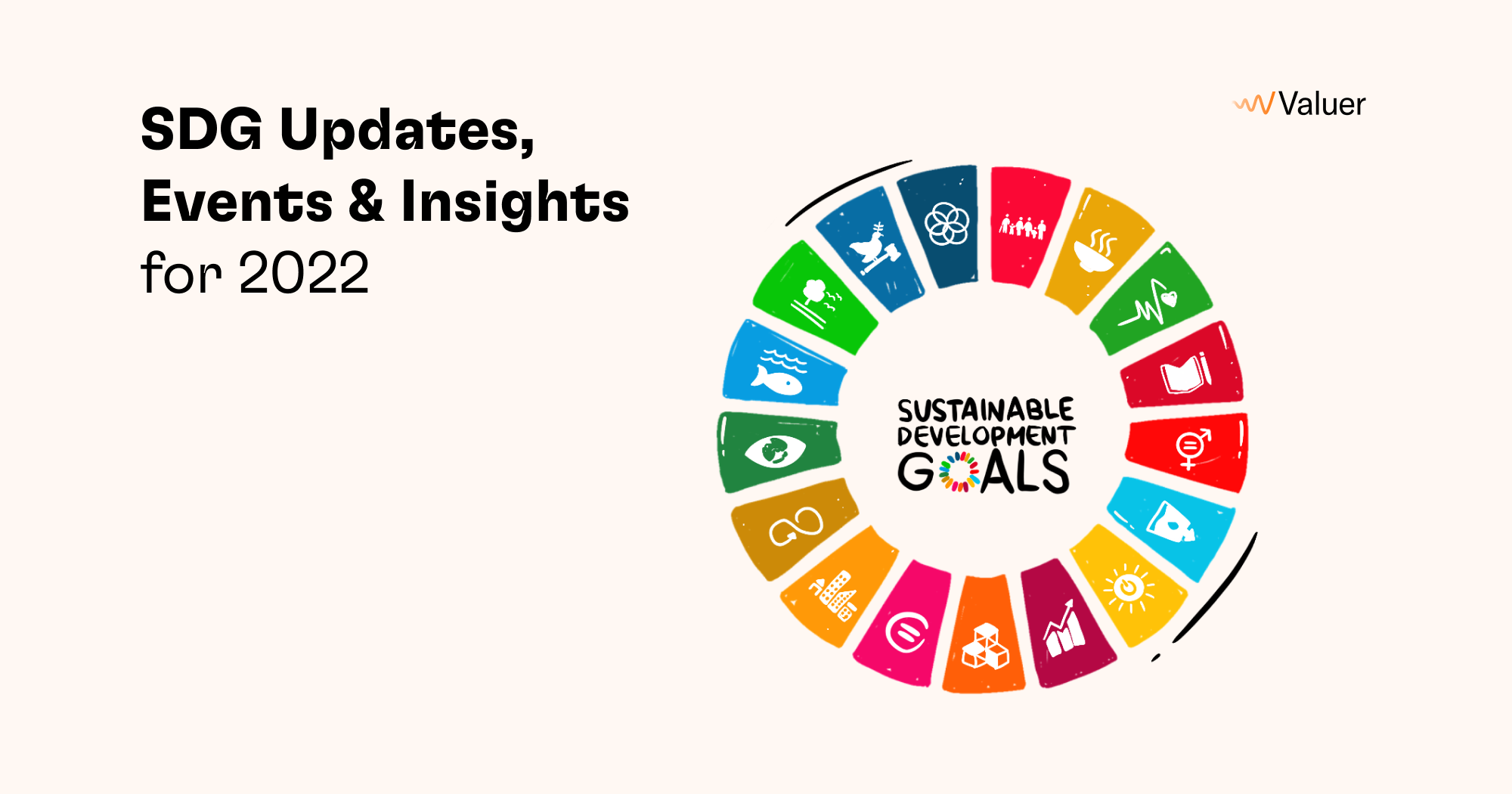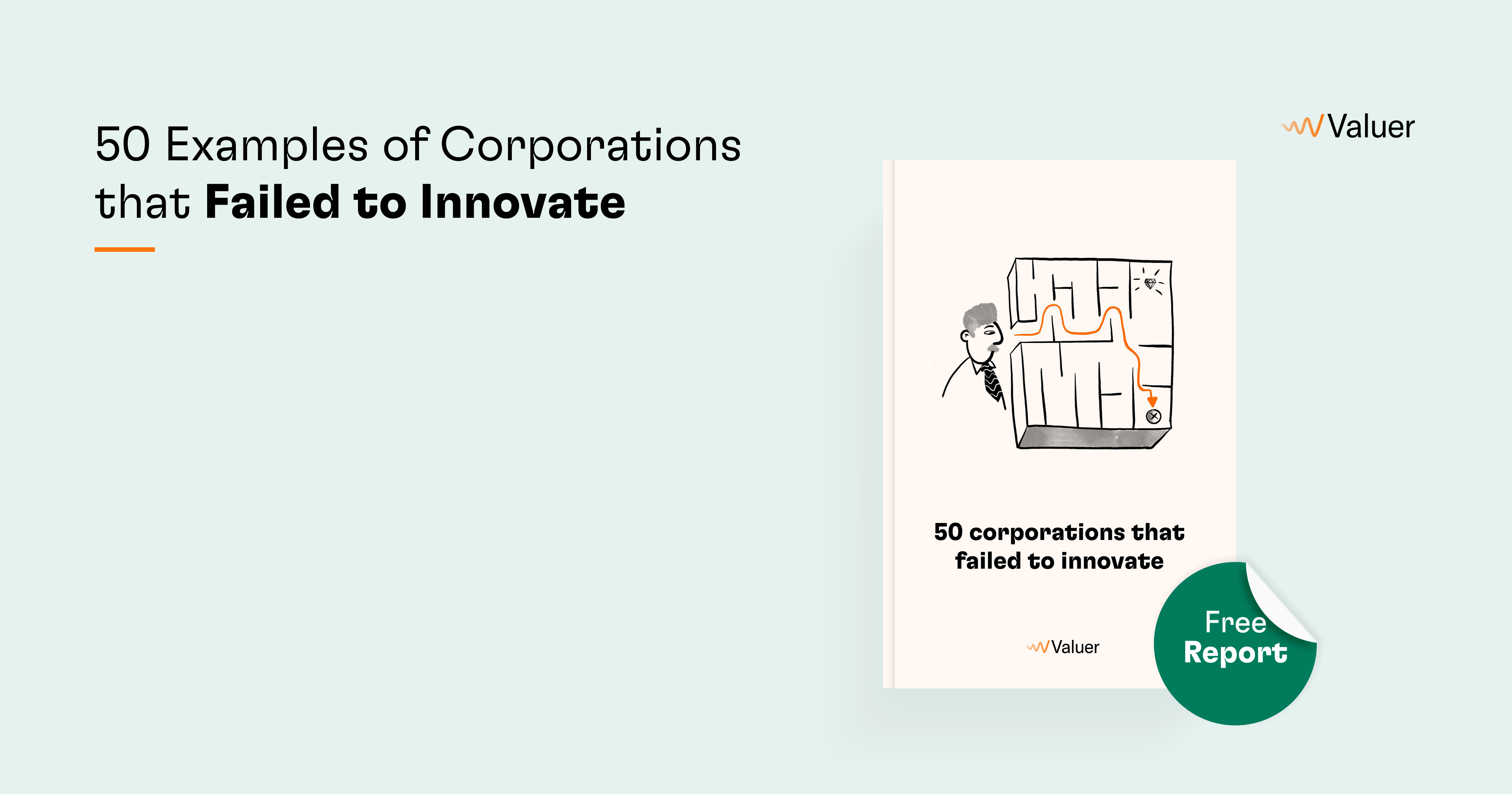*Updated October 2022
Zero hunger by 2030
Understanding the potential of disruptive innovation in addressing some of the most complex issues our planet faces, Valuer publishes a report dedicated to one of the 17 UN Sustainable Development Goals each month.
The original SDG 2: Zero Hunger demonstrates how large corporations can engage with the goal by adopting innovative food storage and preservation approaches, sustainable crop production, and sustainable livestock farming. Much has happened since the onset of SDG2, and we revisited in the topic of agriculture in our comprehensive report Sustainable Agriculture and the Future Of Farming
The report includes market predictions, trending technologies, and three successful startups that work within areas relevant to the UN goal. Moreover, the publication explains how Valuer’s online platform uses AI to help large companies find SDG-related startups and technologies that match their unique needs.
What's in the forecast?
By reading our forecast, you will expand your knowledge on action towards resolving world hunger through insights on startups, technological trends, and focus areas. Inform yourself on how your business can become more environmentally and economically sustainable through our solutions analysis. Valuer assists organizations adopt the most compatible sustainability-related technologies.
More organizations that do a great job at addressing SDG 2
The full version of the SDG Forecast report includes six case studies: three SDG 9 startups and their technologies explained in detail (Sufresca, Plantible Foods, Boost Biomes) and three corporations (General Mills, Bayer, Walmart) that do a great job at engaging with the UN goal.
Aside from the organizations featured in the report, these are some additional NGOs, governments, corporations, and startups that work towards achieving the second UN goal.
Startups that do a great job addressing SDG
Paris, France
Algama Foods
Algama is a sustainable food-tech startup that aims to harvest the potential of algae to create food that's good for both people and the planet. Algama hopes to achieve this by leveraging its scientific and technical expertise to develop algae-based alternatives to animal protein.
Boston, USA
Made with Motif
 Motif FoodWorks strives to facilitate the sustainable food revolution by helping plant-based food brands improve their products' taste and texture. To this end, the startup uses a combination of genetic engineering and microorganism fermentation technology to brew key protein and fat ingredients that give animal products their appeal.
Motif FoodWorks strives to facilitate the sustainable food revolution by helping plant-based food brands improve their products' taste and texture. To this end, the startup uses a combination of genetic engineering and microorganism fermentation technology to brew key protein and fat ingredients that give animal products their appeal.
Glendale, USA
Alpha Foods
 American startup AlphaFoods is on a mission “to create a convenient vegan alternative for all meat-based comfort foods”. Alpha Foods aims to achieve this with its frozen plant-based meat products for flexitarian, vegetarian, and vegan consumers. The startup is intently focused on developing products that provide excellent taste and health benefits and positively impact the environment and animal welfare.
American startup AlphaFoods is on a mission “to create a convenient vegan alternative for all meat-based comfort foods”. Alpha Foods aims to achieve this with its frozen plant-based meat products for flexitarian, vegetarian, and vegan consumers. The startup is intently focused on developing products that provide excellent taste and health benefits and positively impact the environment and animal welfare.
Dublin, Ireland
Nuritas
 Nuritas aims to revolutionize human healthcare by leveraging the potential of peptide-based therapies. The startup has developed a proprietary AI-based platform that has the ability to accelerate drug discovery in a fast and accurate manner, bringing significant cost savings. Nuritas’ technology has the potential to provide novel solutions to partners across various industries, including pharmaceuticals, food, health and wellness, dermatology/personal care, as well as animal and plant health.
Nuritas aims to revolutionize human healthcare by leveraging the potential of peptide-based therapies. The startup has developed a proprietary AI-based platform that has the ability to accelerate drug discovery in a fast and accurate manner, bringing significant cost savings. Nuritas’ technology has the potential to provide novel solutions to partners across various industries, including pharmaceuticals, food, health and wellness, dermatology/personal care, as well as animal and plant health.
Houston, USA
Anizome
 ANIZOME is building a therapeutic platform focused on the commercial application of microbiome research in the field of animal health. To achieve this, the startup developed a DNA sequencing technology to transform cutting-edge research insights into commercial remedies for improved animal health.
ANIZOME is building a therapeutic platform focused on the commercial application of microbiome research in the field of animal health. To achieve this, the startup developed a DNA sequencing technology to transform cutting-edge research insights into commercial remedies for improved animal health.
New Cannon, USA
Bactana Animal Health
 Bactana developed a novel medication that acts as a healthier alternative to antibiotics administered to livestock by isolating a new bacteria strain from cows' gut microbiota. The startup claims that by switching from antibiotics and hormones to Bactana’s solution, farmers can increase the livestock’s growth, weight, and milk production and reduce their mortality. Since the product is based on naturally occurring bacteria, it is sustainable and healthier for animals and human consumers, simultaneously minimizing the chances of developing antibiotic resistance.
Bactana developed a novel medication that acts as a healthier alternative to antibiotics administered to livestock by isolating a new bacteria strain from cows' gut microbiota. The startup claims that by switching from antibiotics and hormones to Bactana’s solution, farmers can increase the livestock’s growth, weight, and milk production and reduce their mortality. Since the product is based on naturally occurring bacteria, it is sustainable and healthier for animals and human consumers, simultaneously minimizing the chances of developing antibiotic resistance.
Goleta, USA
Apeel Sciences
 Apeel Sciences is focused on reducing food waste by leveraging naturally available solutions. To achieve this, the startup has developed an all-natural coating made from organic byproducts that mitigate produce spoilage by keeping moisture inside the product and oxygen out.
Apeel Sciences is focused on reducing food waste by leveraging naturally available solutions. To achieve this, the startup has developed an all-natural coating made from organic byproducts that mitigate produce spoilage by keeping moisture inside the product and oxygen out.
Helsinki, Finland
Sulapac
 The Finnish startup Sulapac aims to address the issue of plastic waste with its sustainable packaging solutions. To this end, Sulpac has developed scalable, biodegradable packaging made of wood chips collected from industrial side streams. The solution is free of microplastics, has a low carbon footprint, and can be integrated into the existing plant infrastructure.
The Finnish startup Sulapac aims to address the issue of plastic waste with its sustainable packaging solutions. To this end, Sulpac has developed scalable, biodegradable packaging made of wood chips collected from industrial side streams. The solution is free of microplastics, has a low carbon footprint, and can be integrated into the existing plant infrastructure.
Aarhus, Denmark
Pond Biomaterials
 Pond Biomaterials aims to reduce resource demand by designing sustainable natural resins that produce fully biodegradable materials when combined with natural fibers such as flax, pineapple, palm leaves, and cotton. The startup solutions have the potential to replace traditional oil-based resin systems with sustainable alternatives for applications in aerospace, automotive, plastic, etc.
Pond Biomaterials aims to reduce resource demand by designing sustainable natural resins that produce fully biodegradable materials when combined with natural fibers such as flax, pineapple, palm leaves, and cotton. The startup solutions have the potential to replace traditional oil-based resin systems with sustainable alternatives for applications in aerospace, automotive, plastic, etc.
Nyon, Switzerland
Agrosustain
 AgroSustain strives to reduce food waste by developing a biological post-harvest treatment for fungal pathogens. The startup’s first product is named AgroShelf+, a plant-based spray that prevents pathogenic fungi from growing on fruit and vegetables and requires no additional installation costs.
AgroSustain strives to reduce food waste by developing a biological post-harvest treatment for fungal pathogens. The startup’s first product is named AgroShelf+, a plant-based spray that prevents pathogenic fungi from growing on fruit and vegetables and requires no additional installation costs.
Green Island, USA
Ecovative Design
 Inspired by the natural power of mushrooms to bind materials together, the founders of Ecovative Design decided to develop novel methods to use mycelium as a resin. Based on this technology, the New York-based startup has developed biodegradable materials that represent a sustainable alternative to plastics and polyester-based materials, with additional applications in food, skincare, etc.
Inspired by the natural power of mushrooms to bind materials together, the founders of Ecovative Design decided to develop novel methods to use mycelium as a resin. Based on this technology, the New York-based startup has developed biodegradable materials that represent a sustainable alternative to plastics and polyester-based materials, with additional applications in food, skincare, etc.
New Brunswick, Canada
Chinova Bioworks
 Chinova Bioworks hopes to replace artificial preservatives used in the food and beverage sector with natural additives that make products safer and improve people's health. To this end, the startup has developed Chiber, a natural polymer that can be found in mushrooms. The clean-label extract has all synthetic preservatives functions, protecting against bacteria, yeast, and molds.
Chinova Bioworks hopes to replace artificial preservatives used in the food and beverage sector with natural additives that make products safer and improve people's health. To this end, the startup has developed Chiber, a natural polymer that can be found in mushrooms. The clean-label extract has all synthetic preservatives functions, protecting against bacteria, yeast, and molds.
Zurich, Switzerland
OneSoil
 OneSoil aims to streamline modern agriculture with its AI-powered precision farming platform. To achieve this, the startup leverages satellite imaging technology and machine learning to create an indicator of a plant’s health by comparing the values of absorption and reflection of red and infrared light.
OneSoil aims to streamline modern agriculture with its AI-powered precision farming platform. To achieve this, the startup leverages satellite imaging technology and machine learning to create an indicator of a plant’s health by comparing the values of absorption and reflection of red and infrared light.
Bedford, USA
Soft Robotics
 By developing solutions that facilitate automation in markets such as food & beverage, manufacturing, e-commerce, logistics, and reverse logistics, Soft Robotics aims to liberate people from "dull, dirty, and dangerous jobs". When designing its products, the startup's main focus is to develop solutions that are less complex than conventional systems and can be integrated with any robot.
By developing solutions that facilitate automation in markets such as food & beverage, manufacturing, e-commerce, logistics, and reverse logistics, Soft Robotics aims to liberate people from "dull, dirty, and dangerous jobs". When designing its products, the startup's main focus is to develop solutions that are less complex than conventional systems and can be integrated with any robot.
Delft, The Netherlands
Atmos UAV
 Atmos is on a mission to "empower professionals across all industries to effortlessly gather geospatial data from the sky, enabling them to make more informed decisions, efficiently and effectively". To facilitate this, the startup has developed its flagship product, a drone named Marlyn that combines the "flexibility of a multirotor with the efficiency and speed of a fixed-wing.
Atmos is on a mission to "empower professionals across all industries to effortlessly gather geospatial data from the sky, enabling them to make more informed decisions, efficiently and effectively". To facilitate this, the startup has developed its flagship product, a drone named Marlyn that combines the "flexibility of a multirotor with the efficiency and speed of a fixed-wing.
Saint-Louis, USA
NanoGuard Technologies
NanoGuard Technologies aims to eliminate food waste with its proprietary High Voltage Atmospheric Cold Plasma (HVACP) process that pasteurizes food surfaces to prevent spoilage. The startup believes that its technology has the potential to transform several industries, including grain, meat, poultry, seafood, brewing, water treatment, spices, nuts, and fresh products.
Dijon, France
Novolyze
By developing products and services that reduce the risk of foodborne infections, the French startup Novolyze aims to make food safer. To accomplish this, Novolyze uses a combination of the latest technologies in microbiology, digital, IoT, and machine learning to create solutions that help the food industry produce safer food while ensuring compliance with international standards.
San Diego, USA
Plantible Foods
Plantible Foods is a food technology startup that aims to transform the food industry with its scalable, vertically integrated, and climate-friendly production of plant-based proteins. To this end, the startup has developed a sustainable aqua-farming and extraction technology to utilize the potential of the lemna plant.
San Francisco, USA
Boost Biomes
 Boost Biomes believes that harnessing the potential of the microbiome can lead to sustainable agriculture. To achieve this, the startup has developed a proprietary discovery platform that uses DNA sequencing technology to observe the interactions between microbiomes, which it leverages to develop products for improved crop health and food safety.
Boost Biomes believes that harnessing the potential of the microbiome can lead to sustainable agriculture. To achieve this, the startup has developed a proprietary discovery platform that uses DNA sequencing technology to observe the interactions between microbiomes, which it leverages to develop products for improved crop health and food safety.
Tel Aviv, Israel
Sufresca
 Sufresca results from 30 years of continuous research to develop product shelf-life extension technologies. Since its founding in 2018, the startup has developed fully edible coatings that, when applied on the surface of fresh products, can extend the shelf life of fresh fruits and vegetables by up to several weeks.
Sufresca results from 30 years of continuous research to develop product shelf-life extension technologies. Since its founding in 2018, the startup has developed fully edible coatings that, when applied on the surface of fresh products, can extend the shelf life of fresh fruits and vegetables by up to several weeks.
NGOs that do a great job addressing SDG 2
Geneva, Switzerland
Global Alliance for Improved Nutrition
The Global Alliance for Improved Nutrition (GAIN) is a Geneva-based non-profit organization with a vision for "a world without malnutrition, in which all people have access to and consume nutritious and safe food." The organization's operational model includes forming national, regional, and global alliances, and providing various public and private organizations with technical, financial, and policy support.
The main focus of these activities is using proven and cost-effective approaches to improve access to safe and nutritious food in the markets where people are at risk of malnutrition. To this end, GAIN's program portfolio consists of programs providing large-scale food fortification, multi-nutrient supplements, nutritious foods for mothers and children, and enhancement of the nutritional content of agricultural products.
Raleigh, USA
Rise Against Hunger
Rise Against Hunger is a global organization that aims to end hunger by providing nutritious food to people at risk of malnutrition in developing countries. The organization's primary function is to partner with local charities to produce and distribute millions of nutritious meals annually. By promoting education, improving students' health and nutrition, addressing gender inequalities, stimulating economic growth, and combating child labor, the organization is careful to use food to improve people's lives positively. Rise Against Hunger also works to provide access to nutritious food during natural and artificial crises.
The organization achieves this by operating through its network of local partners to distribute food during droughts, floods, conflict zones, and political transitions. Finally, Rise Against Hunger strives to support grassroots community empowerment. The organization provides assistance by offering educational programs that help to improve agricultural production and increase income through modern farming methods, business skills, and market access.
Accra, Ghana
Food for All Africa
 Food for All Africa is a non-profit organization that uses mobile technology to solve the problem of widespread hunger and food waste in Ghana. The organization achieves this by recovering quality edible surplus food from the supply chain and distributing it to community organizations serving the poor and needy. To provide effective and sustainable nutrition, Food for All Africa has developed programs for food banking, long-term social development, awareness-raising, education, and feeding.
Food for All Africa is a non-profit organization that uses mobile technology to solve the problem of widespread hunger and food waste in Ghana. The organization achieves this by recovering quality edible surplus food from the supply chain and distributing it to community organizations serving the poor and needy. To provide effective and sustainable nutrition, Food for All Africa has developed programs for food banking, long-term social development, awareness-raising, education, and feeding.
The organization works with local restaurants, supermarkets, food distribution companies, and rural smallholder farmers to collect leftovers or unwanted food that is close to its use-by date. The gathered food is then distributed to disadvantaged children in orphanages, hospitals, and low-income schools. Food for All Africa also works at a national level to develop policies that make it easier for suppliers to donate food and claim tax benefits. In addition, the organization is collaborating with stakeholders in the Ghanaian food industry to find ways to reduce food waste as a result of poor roads, broken trucks, and inefficient marketing.
Governments that do a great job addressing SDG 2
United Arab Emirates
 The Government of the United Arab Emirates has developed several local and international programs to address food security and malnutrition issues. To this end, the country declared 2017 the year of giving, to foster a culture of charity. The UAE has also launched a food bank initiative to distribute food to those in need while eliminating food waste. This initiative will provide surplus fresh and dry food to charities that feed the needy in the UAE and abroad.
The Government of the United Arab Emirates has developed several local and international programs to address food security and malnutrition issues. To this end, the country declared 2017 the year of giving, to foster a culture of charity. The UAE has also launched a food bank initiative to distribute food to those in need while eliminating food waste. This initiative will provide surplus fresh and dry food to charities that feed the needy in the UAE and abroad.
A similar project was launched by the Emirates Red Crescent, which aims to reduce waste by reusing and recycling items to provide those in need with unused/discarded items such as food, clothing, furniture, and medicines that are in good condition.
In addition, several initiatives have been launched by the Ministry of Climate Change and Environment to reduce food waste and end hunger. The first program named Fish Box proposes to donate confiscated fish or fish provided by fishermen to those in need in collaboration with local authorities. Next, the Sphere Gardens initiative aims to educate children about sustainable food production and becoming wise consumers. The program focuses on a total of 28 schools in all seven Emirates.
Finally, the Food Atlas program aims to educate readers about how much food to eat and the nutritional value of the portion they consume. The Atlas comprises 150 international and local food products and forms the basis for a broader plan to address chronic diseases, nutrition, water consumption, and food security in the UAE.
France
 The French Government has adopted a proactive international policy that promotes sustainable and healthy access to food for all. To this end, the French Ministry of Foreign Affairs launched the International Strategy for Food Security, Nutrition, and Sustainable Agriculture (2019-2024), which focused on five key issues.
The French Government has adopted a proactive international policy that promotes sustainable and healthy access to food for all. To this end, the French Ministry of Foreign Affairs launched the International Strategy for Food Security, Nutrition, and Sustainable Agriculture (2019-2024), which focused on five key issues.
First, France intends to work towards strengthening the global governance of food security and nutrition, thereby playing a key role in improving the effectiveness and coordination of international actors in these areas. Second, in order to address climate change and biodiversity erosion, France will concentrate on developing sustainable agricultural and food systems with a focus on the promotion of sustainable farming practices such as agroecology.
Third, by providing access to high-quality food, drinking water, and good hygiene conditions, France will work to remedy undernutrition among young children and pregnant and breastfeeding women. Fourth, in order to promote the creation of decent jobs in rural areas, particularly for young people, the government will support the structuring of sustainable agri-food chains. These agri-food chains represent a source of employment that should be supported in developing countries, with a particular focus on family agriculture.
Lastly, France will work to strengthen food aid measures for vulnerable populations and to improve their resilience. The goal is to allow these populations to regain their food autonomy against a backdrop of recurrent food crises.
Slovenia
 The Government of Slovenia has launched several initiatives to address access to quality food and prevent malnutrition in the country, such as the School Fruit and Vegetable Scheme and the Robin Food Social Enterprise.
The Government of Slovenia has launched several initiatives to address access to quality food and prevent malnutrition in the country, such as the School Fruit and Vegetable Scheme and the Robin Food Social Enterprise.
The School Fruit and Vegetable Scheme aim to improve children's nutritional habits and reduce the prevalence of obesity by providing free fruit and vegetables in schools for eight years. The program received positive feedback, being successfully deployed in 90% of all elementary schools in Slovenia. Moreover, in 2017 the program was further expanded to include milk and other dairy products. Additional goals of the program include connecting children to agriculture and educating them about healthy eating habits, local food chains, organic production, sustainable production, and food waste prevention.
The Government has also supported the social enterprise Robin Food, an organization that aims to help those in need by providing access to surplus food that would otherwise be discarded. The organization achieves this by partnering with companies that either donate or sell products at a meager cost, then sell in discount Robin Food stores. Stores operate with a zero-waste strategy, enabling shoppers to use their own reusable packaging to store the products. In addition, the organization established the Robin Food Bistro, which serves meals made from ingredients that would otherwise be thrown out. The bistro offers these meals at one-third of the usual price, with a key focus to process the surplus food in ways that generate as little waste as possible.
Corporations that do a great job addressing SDG 2
Vevey, Switzerland
Nestle
 As part of its effort to help achieve zero hunger, Nestle has chosen to focus on the issue of "hidden hunger," i.e. deficiencies in essential vitamins and minerals which, according to the World Health Organization, are present in more than 30 % of the world's population.
As part of its effort to help achieve zero hunger, Nestle has chosen to focus on the issue of "hidden hunger," i.e. deficiencies in essential vitamins and minerals which, according to the World Health Organization, are present in more than 30 % of the world's population.
Fortifying staple foods, such as adding iron and folic acid to flour, or vitamin A to cooking oil or sugar to target the poorest and hardest to reach communities, is a simple and cost-effective step to address this glaring issue.
To help remedy the issue, Nestle developed fortified Maggi stock cubes intended for the market in West Africa. The solution has been widely successful, helping to reduce iron deficiency anemia in Côte d'Ivoire by an estimated 3%.
Oslo, Norway
Orkla
 The Norwegian conglomerate Orkla has developed a comprehensive plan focusing on five areas where the company can leverage its influence to help achieve the objectives of the SDGs, which include nutrition and health, food safety, responsible sourcing, the environment and human and social care.
The Norwegian conglomerate Orkla has developed a comprehensive plan focusing on five areas where the company can leverage its influence to help achieve the objectives of the SDGs, which include nutrition and health, food safety, responsible sourcing, the environment and human and social care.
Orkla believes that the most efficient way to achieve these objectives is to help farmers and other relevant stakeholders adopt production methods focused on health and sustainability, as well as to promote traditional methods for the sourcing of non-GMO raw materials.
Basis of these activities, Orkla has set ambitious targets to be achieved by 2025, such as reaching 50,000 farmers through improvement programs and adopting sustainable production of agricultural products, marine and animal raw materials.
Leverkusen, Germany
Bayer
 As part of Bayer's efforts to eradicate hunger, the company has decided to focus primarily on smallholders in developing countries and emerging economies, which account for 80% of the domestic food supply.
As part of Bayer's efforts to eradicate hunger, the company has decided to focus primarily on smallholders in developing countries and emerging economies, which account for 80% of the domestic food supply.
These farmers face issues such as food shortages on a routine basis and live on the poverty line without advancing beyond subsistence agriculture. In order to remedy this, Bayer intends to develop tailor-made solutions to help farmers with problems such as loans, storage, transportation, and sales, as well as to provide training in modern agricultural practices.
Bayer intends to extend this support to more than 100 million smallholder farmers in developing countries by 2030 as a means of improving local food supply production and reducing poverty in rural areas.th
Tackling SDG 2 is sustainable and economical
Technological breakthroughs and creativity are critical to tackling world hunger and reducing the time and cost necessary to achieve results. Moreover, we believe that blending purpose with profit promises companies a competitive advantage that meets modern customers’, employees, and investors’ expectations.
Aside from contributing towards achieving SDG 2’s ambitions, using creative techniques and innovative technology allows businesses to drive sustainability and reduce costs in the long run, increase supply chain resilience, and improve a company’s brand image.



.jpg?width=80&height=80&name=plantible%20(2).jpg)


